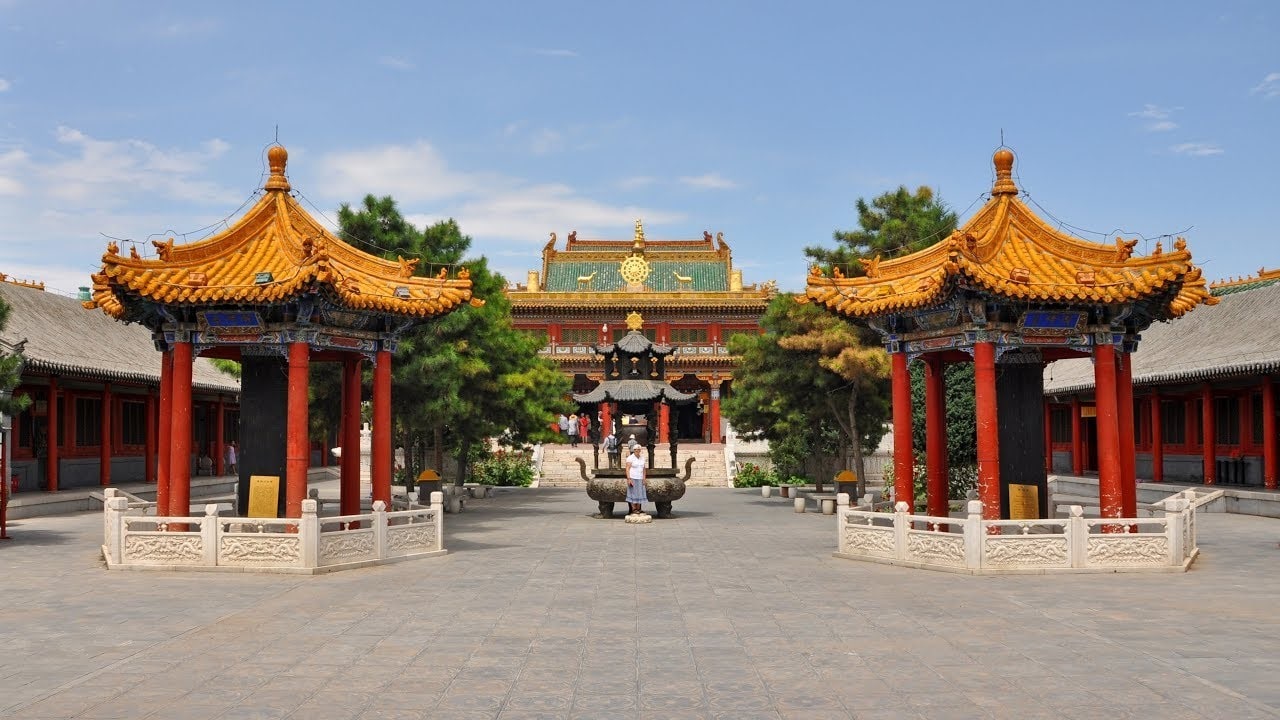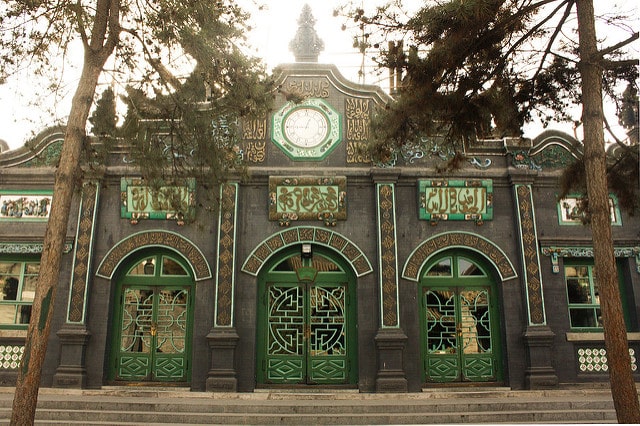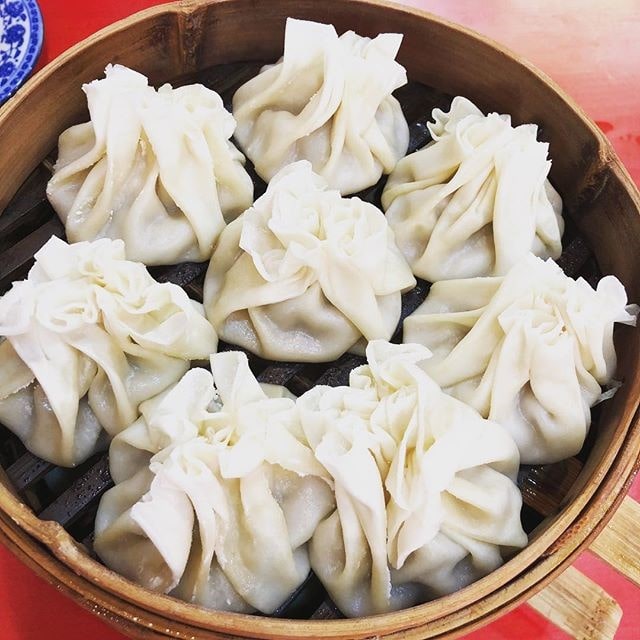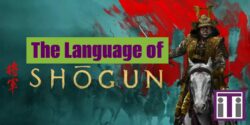
Welcome to our Translator Spotlight series! We look forward to sharing with you the real people behind the computer screen, the translators who put in knowledge, expertise and care into making every translation spot on. Each month we will feature a Q & A with one translator who has stood out for going above and beyond.
This month we are elated to present our conversation with Linda Hill, Chinese Mandarin interpreter and translator.
Please describe your cultural background (languages spoken, ethnicity etc.)
I was born and raised in Northern China. We lived in the northeast part of the country (Huhhot, Inner Mongolia). Even though there is a heavy accent in the local dialect we spoke, it is still very similar to Mandarin. My ethnicity is Han, the biggest ethnic group in China that also speaks Mandarin.

Linda’s hometown: Huhhot Inner Mongolia, China (PC1)
You are a translator and an interpreter- what are the differences between them in your experience?
As an interpreter, you have to quickly and accurately translate what was said in real time, and in many ways facilitate the continuation of the conversation to ensure mutual understanding. The key is in communication. Like spoken language vs. written language, interpretations require a certain level of accuracy but it is not about perfection.
In translation, the requirement for accuracy is even higher. Especially when translating legal, medical or scientific documents, where special terminology is used and stated in certain ways. It is more than just converting words into a different language, but with precision and refinements. And all the words have to be correctly used to fit the contexts. For creative writing pieces, the original writing style should also be reflected into the translated version as well.
So in many ways, translation emphasizes more on the language, interpretation is more about communication.
Which role of the two is more challenging?
To me they are both exciting because I love challenges. But if “challenging” means a higher degree of difficulty, I definitely think translation is more challenging especially when you want to provide quality work. It requires a higher level of linguistic skills.
Do you enjoy one of them more than the other?
I have to say it varies from time to time depending on the project. For example: I have been an interpreter for a special ed teacher and we helped a little boy to start communicating spontaneously, from not saying a word at the very beginning. Working with him, the teacher as well as his family, and seeing his progress each week, have brought me so much joy. I was looking forward to the session every week so I can help them to make that difference.
Recently I translated the story of the unlikely friendship between the NBA star Charles Barkley and a Chinese father, written by his daughter after his untimely passing. It was such a touching and beautifully written piece that I felt so honored to be a part of the effort to bring the story to the Chinese community. The translated article was widely circulated on the Chinese social media and many people were deeply moved by the sweet memory of a daughter for her father, the unexpected friendship between a regular immigrant from China with a mega sports star in the US, and the humane traits that connected them and all of us.
So I guess I love doing both, and thanks to the iTi team, I have all these incredible interpreting and translating opportunities.

Huhhot Inner Mongolia, China (PC2)
How did you become a translator and interpreter?
When I lived in China, a lot of people noticed that my English was very good, compared to most people who speak English as a second language. One of my friends was working for a medical company and they needed some medical labels of certain Chinese traditional medicines to be translated. With my background in Biology (M.S. in Genetics and Biology back then), he recommended me. It was very challenging but I did it and they were very happy, so they sent me more work. That was how I started in translation.
As for interpretation, again it was a friend’s recommendation. Some company needed help with some business negotiations with an American group, many people were too nervous to take it on, someone recommended me so I thought, why not? Did it and loved it. Then someone in that American group later recommended me to their associates who were visiting the trade show in the city where I lived, I got more work after.
Do you have any stories of things lost in translation?
There are a lot of signs in China that are in both Chinese and English, especially inside the government agencies and in cities with global tourism. Some of the translations are just hilarious.
One particular example that I remembered was actually at the airport: the original Chinese was “请在一米线外等候”,meaning “Please wait behind the one-meter line”, but on the sign next to the Chinese, the English version was “Please wait outside the rice-flour noodle”. Because in Chinese, words are composed of characters, same characters in different combinations can mean totally different things. So if you break apart the word connections at the wrong place, “one-meter-line” (一米-线) could become “rice noodle floor” (一-米线).
What is something you have translated or a situation when you interpreted that you are proud of?
The examples were actually provided in the answers to the question “Do you enjoy one of them more than the other?”
But I will add an interpretation here that I just did this week. It was to help a potential client to buy a corporate jet from an U.S. dealer.
There were a lot of confusions in the initial talks when they did not have a professional interpreter. Because it is an expensive purchase, it is very important for both of the parties to reach complete mutual understanding. I actually had a conversation with the client before the other party arrived, to get an idea what was the goal of the meeting and what are the critical aspects that we need to reach agreements on.
With that critical information, I was able to help the clients to achieve their goals for this business meeting, and both of the parties felt that they have been clearly understood and were ready for the next steps to move forward with the purchase, and also onto another bigger and very impactful project
Both parties were very appreciative of my work and told me that they could not have reached the success without my help. Also because of my clear communications in between them, they are fully confident in their future collaborations. It has brought me great joy to hear their feedback.
What is the biggest challenge you have faced in your dual role?
The biggest challenge for me has always been in translating traditional Chinese medicine labels and medical research papers regarding Chinese traditional medicine. But I think over time, as you do more work and your skills develop, things get easier and less challenging. I love the variety of projects I get from iTi, they are just so much fun to work on.
What is your opinion on human vs machine translation and interpretation?
Machine translations are very literal. As technologies advance I have to say that they are getting better. However, they cannot fully replace humans.
Because interpretation is all about communication, active facilitation of the conversation is needed and there are also unforeseeable situations where machines are just not adequate.
In terms of translation, I have to say some of most hilarious Chinese-English translations were probably done by machines, as they tend to take the characters apart at wrong places. Furthermore, advance translational works such as articles for publications require higher accuracy and extensive editing. Machine- translated articles are often easily identifiable due to their lack of fluency and sometimes, a total lack of sense.
But that does not mean that we and machines cannot be friends in the field of translation and interpretation. I think machines can be of great help to people and can save us a lot of time searching for the right words when translating articles. They are wonderful tools for interpreters and translators to use to provide quality work within greatly shortened time frames.
What advice would you give to people who are considering the career of a professional translator or interpreter?
My advice is to enjoy it, and have fun. You will get better when you do more work. And keep learning. Read more and practice more. As an interpreter it also requires a certain level of interpersonal skills, be professional and pleasant. It is not about a particular word that has to be perfected translated, it is about human communication. You are that bridge of the communication.
What’s your favorite cultural dish?
Dumplings lol. I can never have enough dumplings.
The photo below is popular local breakfast called Shaomai, it is a unique food in my hometown. Also, Inner Mongolia is famous for the best-tasting lambs. Roasted lamb legs are a famous local dish, a must-taste item when you are visiting.

(PC3)
Photo Credits: PC1 & PC3 courtesy of Linda Hill
About Interpreters and Translators, Inc.
Interpreters and Translators, Inc. is continuously recruiting top talent around the globe. If you are a professional interpreter or translator or interested in breaking into our industry, please feel free to submit our online application. We look forward to hearing from you!






Comments are closed here.